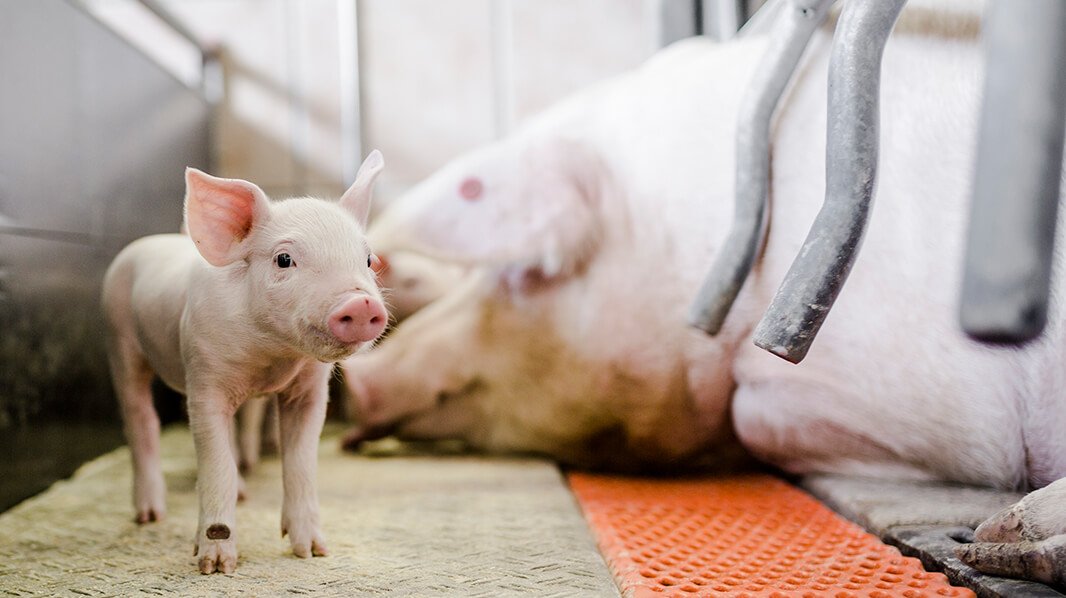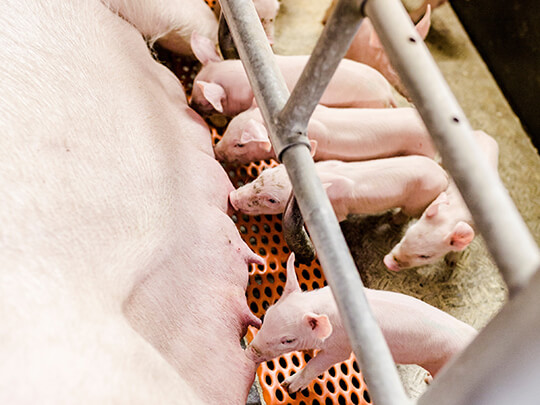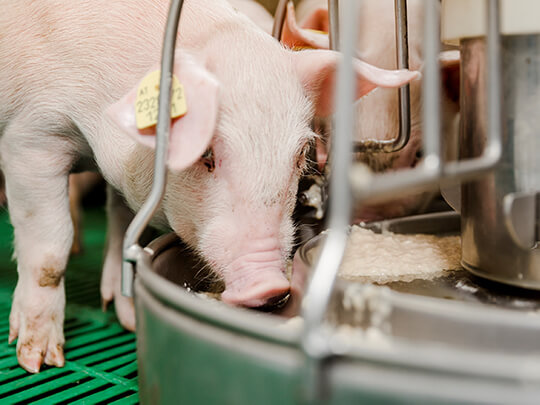
Enhancing feed intake in sows and piglets
As pig farmers are benefitting greatly from faster genetic herd improvements, they also seek solutions to improve piglets’ feeding strategy, growth performance, and robustness against health challenges. Many challenges have an impact on the performance and business goals of a pig farmer.
Successful pig rearing depends on many factors: a consistently high feed intake in pigs right from the start, the development and maintenance of a stable digestive system, high milk quality and quantity of the lactating sow, and uniformity of the litter. Genetic advances in piglet production not only lead to larger litter sizes, but also to new challenges and opportunities: larger litter sizes can impact reduced piglet weight gain, which can lead to increases in days to slaughter. In addition, the lactating sow can experience high weight losses and decreased milk production due to reduced feed intake. This not only can impair the current performance, but also the future reproductive performance indices of the sow, such as fertility, litter size, and farrowing rate.

Early life nutrition is essential to express unprecedented growth potential. A good start for young piglets is key, as proven by the strong connection between neonatal nutrition and lifelong health and performance. High feed intake in pigs early on and an optimal daily gain are crucial to support the development of a healthy immune system and to achieve high growth performance. Adequate growth and vitality of piglets is only possible with high-quality sow milk. However, in order to be able to absorb and use the nutrients optimally, a healthy intestinal tract is required for sows and piglets.
Did you know?
Every piglet lost before weaning is a loss of income per sow and every extra day until the pig is marketed increases production costs. In addition, lack of uniformity of body weight in the litters makes weaning more difficult and ultimately it will have an impact on the management of the pigs at later stages and also increases losses.

One of our feed solutions Fresta™ F is designed for sows and piglets. It is a phytogenic feed solution specially designed to meet the needs of sows and their offspring right from the start. Research has demonstrated that through its appetizing characteristics, adding Fresta™ F to sow diets results in increased feed intake. Sows benefit from increased feed intake and milk production during lactation which ultimately improves litter performance.
Moreover, the solution contributes to profitable swine production, as its composition of selected phytogenic ingredients enhances feed palatability, thus supporting the piglets feed intake and piglet growth performance.
Interested in other Challenges & Solutions?
Some products are only approved for use in certain geographies, end uses, and/or at certain usage levels. It is the customer's responsibility to determine, for a particular geography, that (i) the product, its use and usage levels; (ii) the customer's product and its use; and (iii) any claims made about the customer's product, all comply with applicable laws and regulations. *Any references to “natural/naturally” are as defined by www.aafco.org. Any references to “feed additive(s)” are as per the laws and regulations in the United States. For product registration information, please refer to the product data sheets.
Get in contact

Megan Koppen
RTM Poultry, Sales Group North America
Phone:
+1 (630) 731-0250
e-mail:
Megan_Koppen@cargill.com